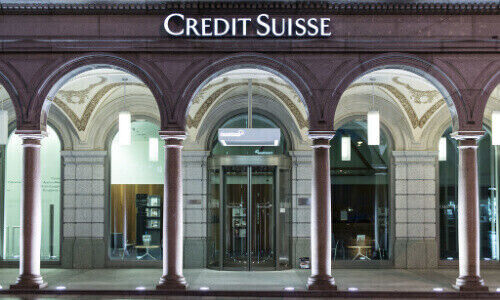The former Swiss bank has been repeatedly forced to pay substantial damages related to a former Georgian client. Now UBS, which saved Credit Suisse a year ago, is doing its utmost best to defend the latter's actions in Singapore.
A court in the city-state is currently wrestling with the hundreds of millions of dollars in client damages. But the full picture is already clear. Credit Suisse and its new parent, UBS, have been forced to pay an exorbitant fee for the fraudulent activities of a former banker related to the assets of Georgian billionaire Bidzina Ivanishvili (image below).
If you take the $743 million in damages that a Credit Suisse trust subsidiary was forced to pay by a court in Singapore last May, as finews.com then reported, and then add the $600 million the institute was forced to cough out in the Bermudas, the damages come out to way more than $1 billion.
Possible Victim
Still, the trust subsidiary managed to get the damages reduced from $926 million last May and it has appealed the decision in Singapore although a final judgment on the appeal remains outstanding.
Credit Suisse has also appealed the decision in the Bermudas. Its legal defense rests on the view that ex-banker Patrice Lescaudron was acting independently and that the bank itself was a victim of what he did.

(Image: Shutterstock)
The former private banker took his own life in 2020 after serving a jail sentence but that by no means put an end to the case. Instead, Ivanishvili and other former Credit Suisse clients impacted by Lescaudron held the bank responsible for the damages. In 2016, the self-named «CS-Victims» went on the offensive. It became increasingly clear to experts what kind of situation Switzerland's then second-largest bank was in, particularly as the level of damages continued to go up.
Going at It
«The clients can afford to escalate the legal conflict for years because of their immense wealth. And the damages that are currently in play are enormous, even for the major institutions,», a veteran Russian banker once told finews.com. Observers knew then that Ivanishvili would never back down until the hapless bank had been forced to make the retribution he felt was needed.
Since then, his lawyers have encircled Credit Suisse by facing up against judges in Singapore, the Bermudas, and Switzerland. Moreover, the Georgian continued his legal campaign even after Credit Suisse was rescued by UBS a little more than a year ago.
Unauthorized Payments
Ivanishvili's stubbornness has been rewarded by the many judgments that have gone his way. They have also opened the door to some of the more embarrassing facts about how the former number two in Swiss banking once managed its business.
According to «Bloomberg» (paywall) lawyers for the Credit Suisse subsidiary in Singapore have indicated to the court that bank employees failed to tell what was once one of their top clients about unauthorized payments made from his portfolio. The bankers had tried their «incompetent best» to address the illicit actions, the defense indicated. In May a year ago, the trust was portrayed as little more than a self-service shop.
Salvaging the Remains
UBS, which is likely interested in working down Credit Suisse's legacies as quickly as possible, is probably trying to salvage whatever it can from the situation by making such confessions in court.
The Lescaudron affair speaks volumes about the now-collapsed bank. If you look at the big picture, a pattern becomes clear, something that first became visible with the overseas cross-border tax disputes of the 2000s. If the opposing side has the money and can exact enough pressure, Swiss banks will end up paying as a way of staving off worse damages.
Bad Omen
That is a bad omen for another case that Credit Suisse sits squarely in the middle of. As part of its rescue in 2023, at the behest of Finma, it fully wrote off its AT1 convertible bonds.
The holders are asking for that step to be completely reversed. Either that or pay damages, with the investors taking the first legal steps with the Swiss Federal Administrative Court last summer.
They are not just charging Credit Suisse, but Finma and the Swiss government as well. The damages they are suing for are around 16 billion francs, significantly higher than those related to the Lescaudron affair. Moreover, they are taking legal steps abroad as well.
Justifiable Maneuvering
Preparations are already underway, with a parting shot being a letter sent by Finma to the court explicitly stating the fear that the conflict might escalate internationally.
This has all the ingredients of the Lescaudron case. The danger of tough settlements in foreign courts and well-organized plaintiffs that have a great deal of time and resources. If nothing else, the possibility of billions in damages easily justifies even the most complex legal maneuvering.




































